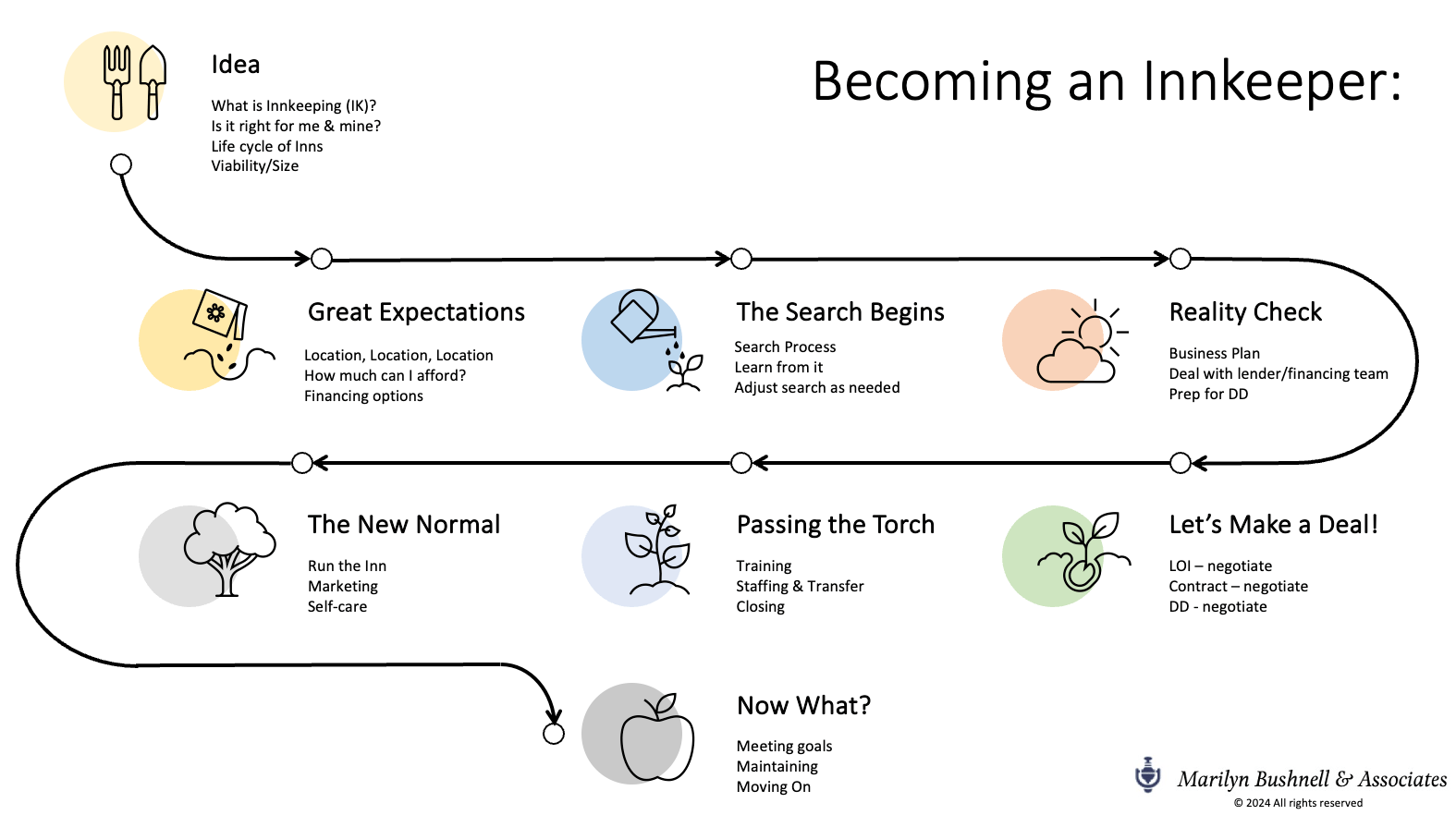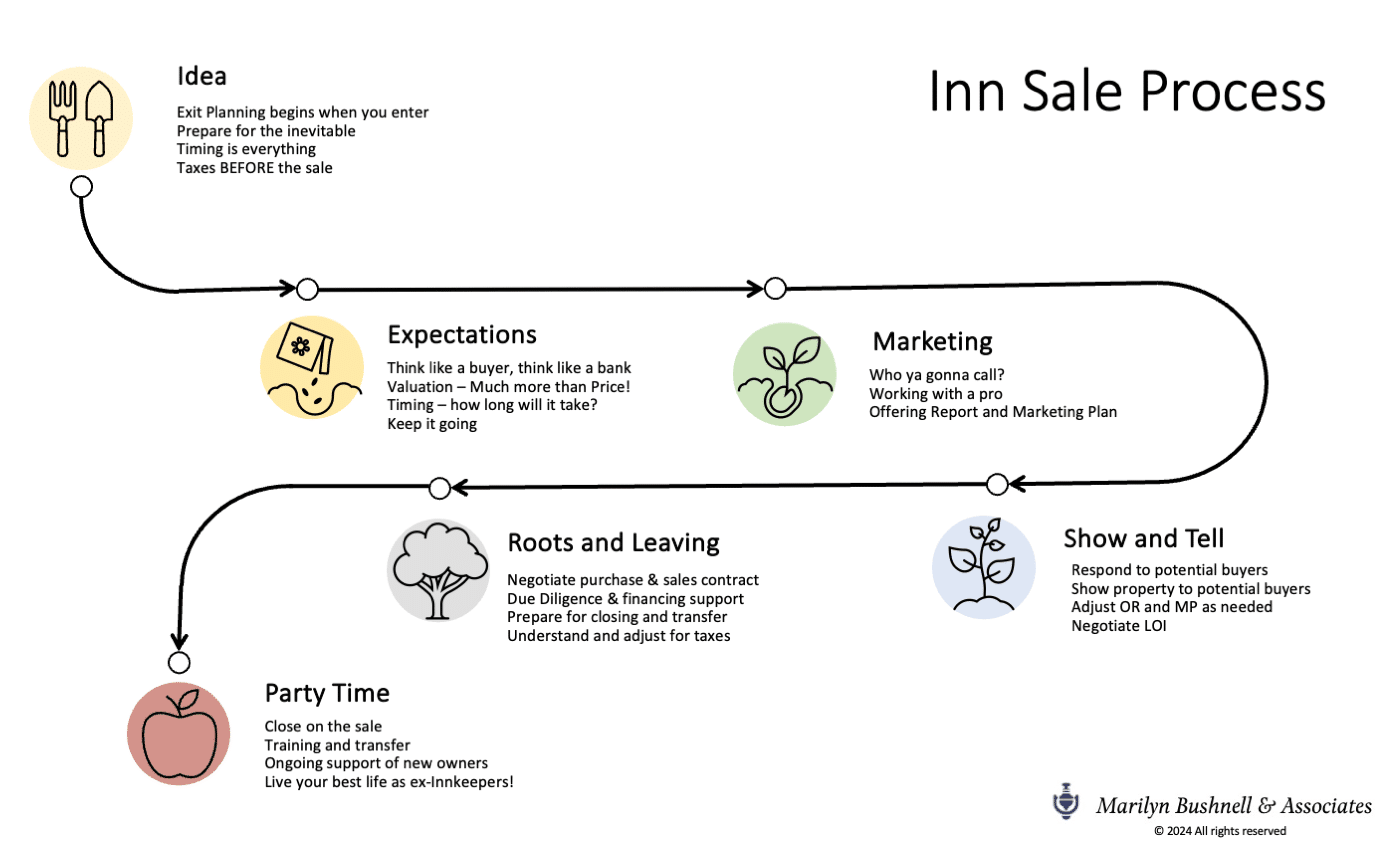Every inn owner we’ve ever talked to has stories about conversations with guests over breakfast that start along the lines of “What a wonderful life you must have as an innkeeper…” And the truth is, they wouldn’t be doing it if they hadn’t felt that way at some point too! But what’s the reality?
Education & Seminars
Aspiring Innkeepers & Bed and Breakfast Owners
General Information
So, do you dream of owning a bed and breakfast, country inn, lodge, cabins, or other great experiential hospitality property? It’s a great dream and can be a wonderful lifestyle when you choose wisely. Before we started to help others on the path of inn ownership, we each ran a successful Select Registry bed and breakfast property for many years.
If you are serious about investigating your dream of becoming a bed and breakfast innkeeper, it is imperative that you go into the business with your eyes wide open. Making the right decisions early on will lay the foundation to a successful inn and a fulfilling personal experience.
Where to begin? A Seminar for Aspiring Innkeepers will put things into perspective!
The national trade group for boutique lodging properties, the Association of Lodging Professionals (ALP), as well as many state and regional associations, will often have these types of seminars available during their annual conferences. Here are some in which we have participated:
LINKS TO PAST AND UPCOMING CONFERENCES
ALP in particular also has a wealth of information on their Aspiring Innkeeper information page.
See our Resources page for some other places to look for in-person training…or just contact us if you have questions, and we will be happy to share some of the lessons we have learned as long-term innkeepers ourselves!
Buyer Education Resources
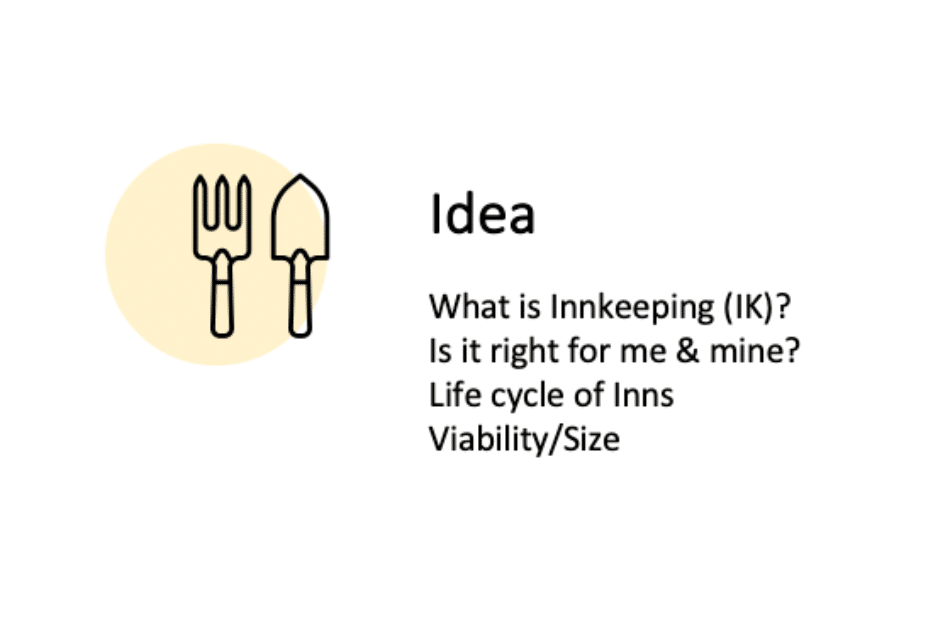
Idea
The reality is: Yes! It can be a lot of fun, it’s often very rewarding, and sometimes you can even make some money. BUT – it’s a business, which means there’s also a whole lot of WORK and a significant amount of risk involved as well.
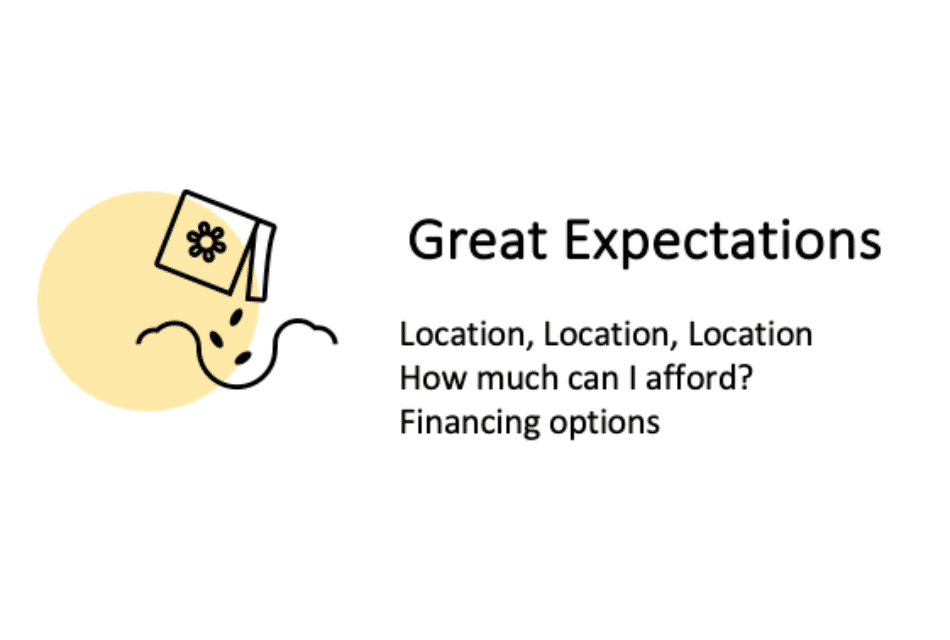
Great Expectations
Once you’ve decided that you really do want to go further down this path, it’s time to start asking a couple of basic questions: Where do you want to be, and how much can you afford to pay for it?
Unlike some businesses in this digital age, the boutique lodging industry is extremely sensitive to location. The business simply doesn’t exist without the building and the land it’s built on. So the most basic question to ask yourself is “Do I want to live and work here?” And the next one is “Can I afford to do that…and if not, where might I want to live and work instead?”
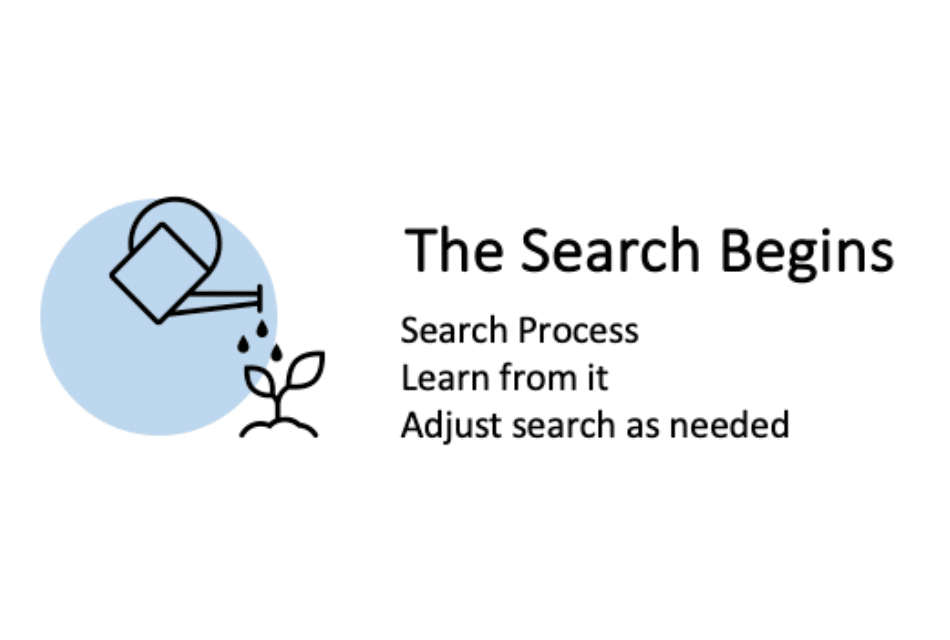
The Search Begins
So now that you have an idea about where you might want to live and work and how much you can afford, how do you go about finding just the right place?
There are a number of places you can look for an existing inn for sale. Of course, the first place we suggest is our listings page, but if you’re like most people, you’ve already been there. Our resources page has some ideas as well.
For most people, the search process takes 6 months to a year, so don’t be discouraged if it takes a while to find just the right place.
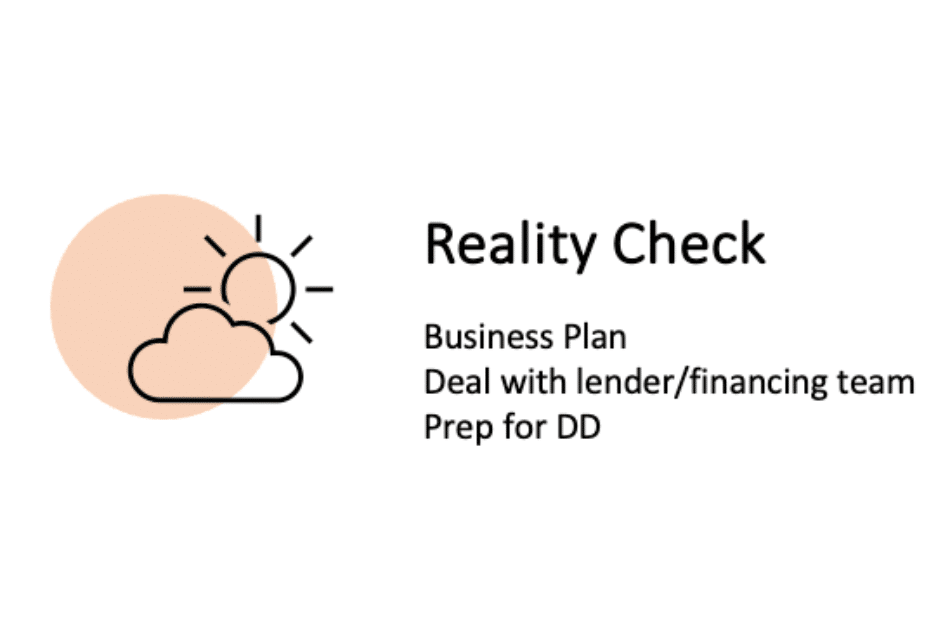
Reality Check
You need a plan – several of them, in fact – in order to make this happen!
A comprehensive business plan is a must in order to secure financing, and it’s also a very useful thing to have for those moments of doubt (and the inevitable “Have you gone crazy??” conversations that will come up). Don’t forget to include a section on your exit strategy.
Also plan to shop a bit for financing – there are many options out there to choose from, including some that you may not expect (example: USDA has helped quite a few hospitality operations in more rural areas).
Finally, have a plan for what you want to see during the due diligence study period. The process will move forward much more smoothly if you have a good idea of what you want to look for before you start.
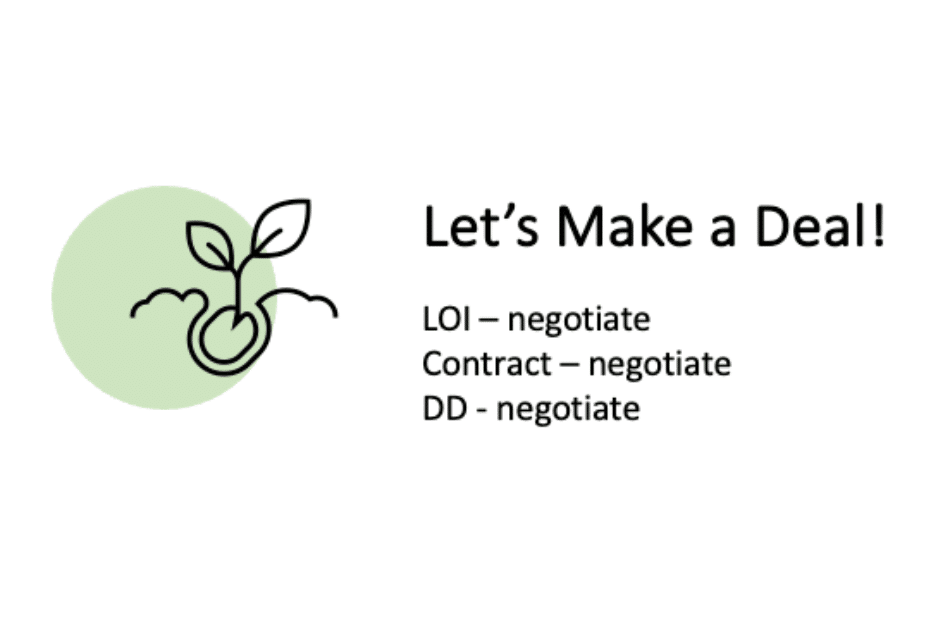
Let's Make a Deal!
The process is not the same as buying a residential property…and generally requires a lot more back-and-forth negotiation.
It starts with a non-binding Letter of Intent (LOI) – a very useful tool for negotiating price and contingencies before anybody puts any money at risk.
Expect to pay an attorney to create a purchase and sale contract. This includes the real estate portion of the transaction, but needs to extend well beyond that to include all areas of the business.
Due Diligence – also called “the Study Period” – is much more than home/facility inspections. It should also include a comprehensive review of the financial performance of the business and give you a good feel for how to run – and potentially improve – the business moving forward.
Finally, there should be a comprehensive Include/Exclude List (sometimes called an Asset List) included with the contract, so both sides know what personal property is expected to remain in place.
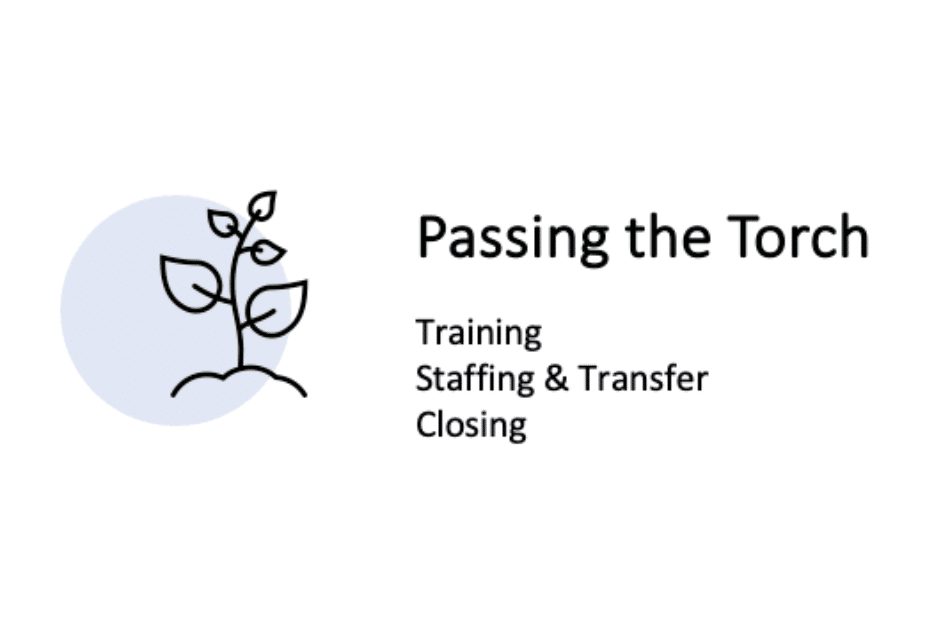
Passing the Torch
Training, staffing, and asset transfer are all critical parts of a seamless handoff from one owner to the next.
The purchase and sale contract should have most of the expectations clearly spelled out. This is another one of those places where a clear plan ahead of time can make all the difference between success and failure.
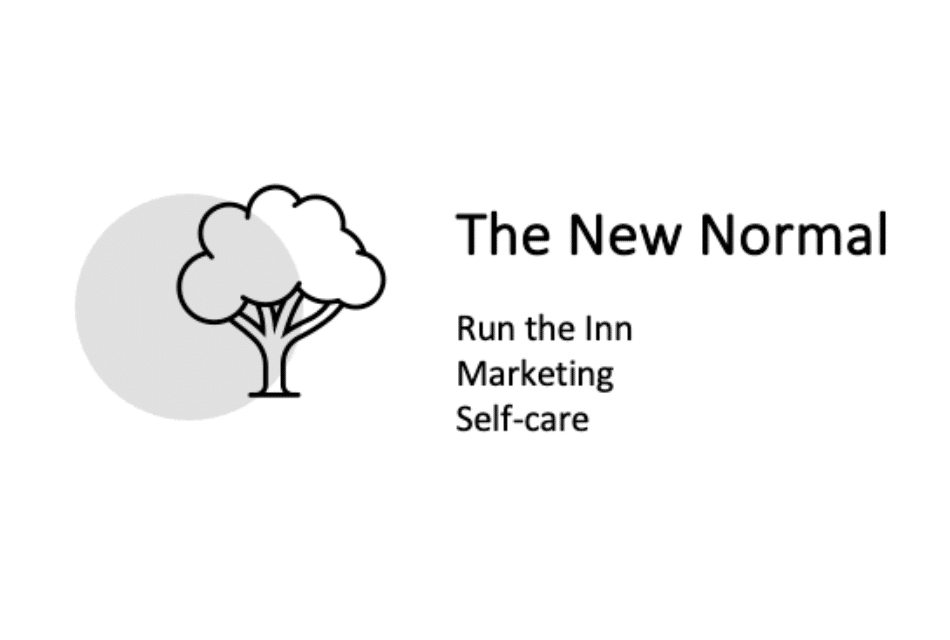
The New Normal
Make it yours. And remember that YOU are in charge now…so do your best to make the boss happy!
Don’t sweat the small stuff – but do pay attention to both the details and the big picture.
Marketing is probably the most important thing to stay on top of, because it ultimately determines how much money you do – or don’t – make…and like it or not, the boss has to pay attention to the bottom line.
That said, self-care is really important for success as well. Don’t forget to take time to relax and smell the coffee – after all, that’s what got you into this to begin with, right??
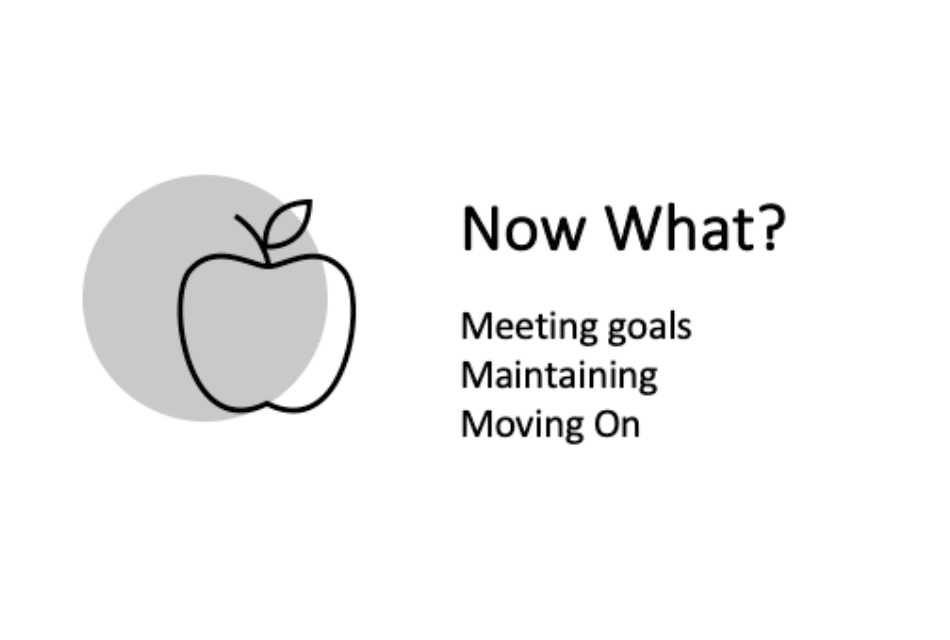
Now What?
Keep an eye on that business plan. Are you achieving your goals? Do they (or the plan) need to adjust as time goes on?
Maintenance is another one of those things that you have to pay attention to. If you get behind on it, little (inexpensive) problems have a way of becoming big (expensive) issues at the worst possible times!
Keep track of where you are in life and business cycles. It generally takes 2 to 3 years to prepare for a sale, and then another 1 – 2 years to make it happen – so plan for that too.
Seller Education Resources
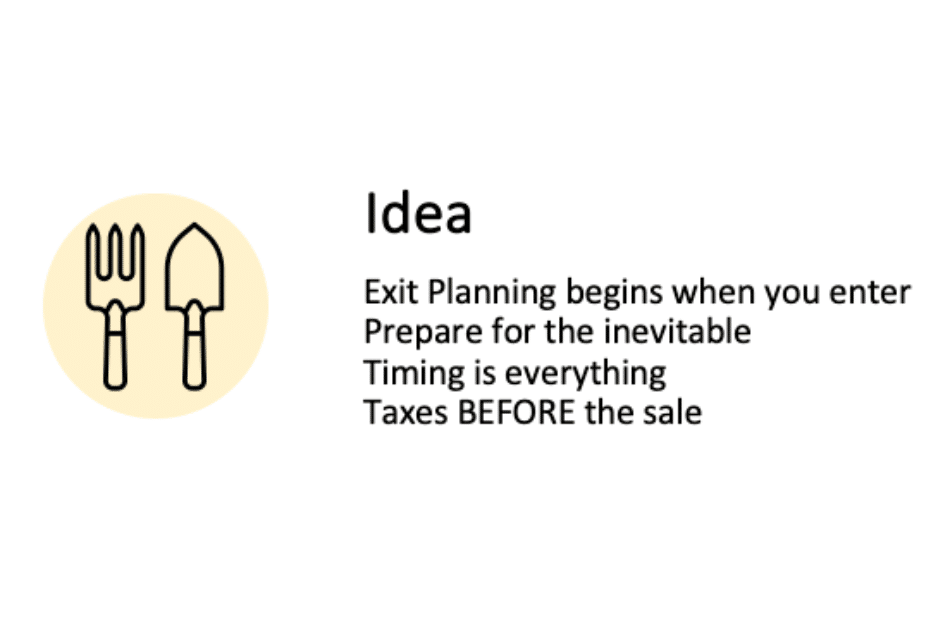
Idea
How do you know when it’s time to sell your Inn? What kind of planning do you need to do ahead of time?
The very best time to begin Exit Planning is before you buy – in your initial business plan. The second-best time is…now.
It’s also important to understand why and why now. Those will have a significant impact on how you approach the process, and the timing.

Expectations
How do you decide on the asking price? How long does it usually take?
First off, look at your business from the perspectives of a potential buyer and their lender.
Then get a professional valuation done. We can help with that if you want, but even if you choose a different approach, make sure it’s done by somebody who understands the experiential hospitality industry … not just a real estate broker or a generic business broker.
Finally, plan for it to take a while.

Marketing
There are many different approaches to selling an inn, just as there are many different types of inns. What’s the best one for you?
Business performance, size, current market conditions, motivation, and location all play roles in both valuing and marketing a hospitality property. Of course, since that’s our primary business, we think hiring a specialist is usually the best approach…MOST of the time. At the end of the day though, it’s in everybody’s best interest to find the path that works best for you and your business.

Show and Tell
How do you identify “real” buyers and respond to them appropriately? What is the process for hosting visits and getting an offer?
Having a partner who understands the hospitality sales business can save you a tremendous amount of time and headache at this stage. A good consultant will help identify potential buyers who are financially qualified, and will set up safeguards to make sure that the confidentiality of your business and financial information is protected.
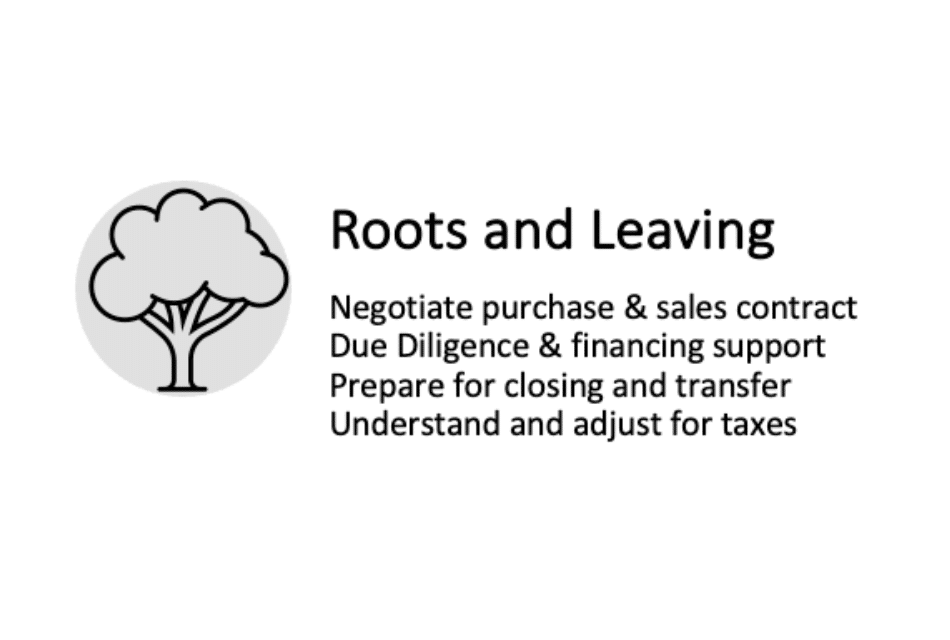
Roots and Leaving
Once the basic parameters of a sale are worked out, it’s time to get into the details of transferring the stewardship of your property.
Now it’s time for lawyers and accountants to be even more involved. An attorney to review the purchase and sale contract (typically drawn up by the buyer’s counsel) and a CPA to review and advise on your tax situation. There’s often a lot more negotiation involved at this stage as well during the due diligence/inspection period.
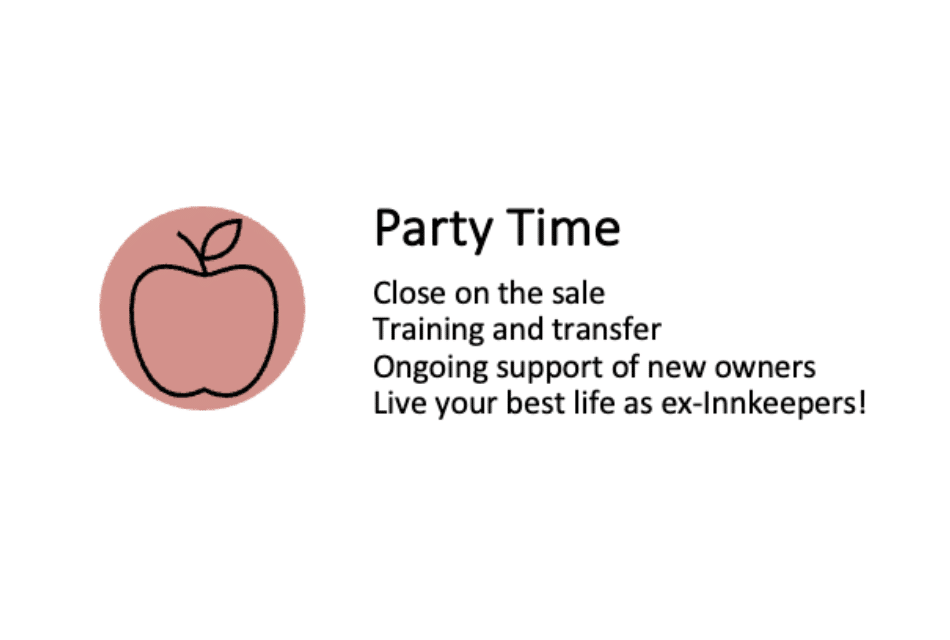
Party Time
OK, you’ve just about sold your child – at least, it often feels like that! Now what?
Most sales contracts also include a training period for the new owner(s) (typically just before closing)…are you prepared for that? Creating and maintaining an operations manual and a comprehensive set of records makes this job a lot easier! Letting go can also be difficult, especially if you have family and/or staff that are going to remain a part of the new operations team. What are you going to do next?
